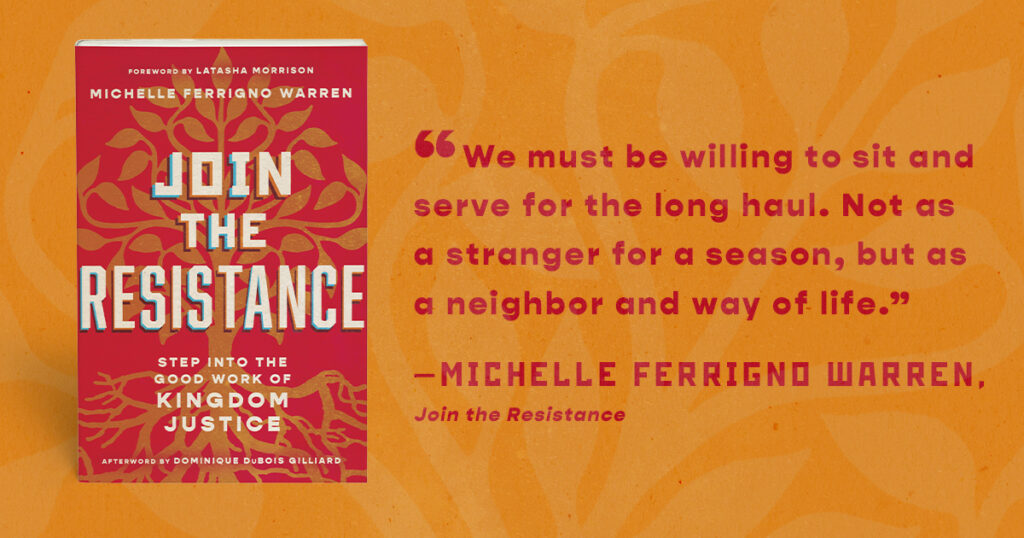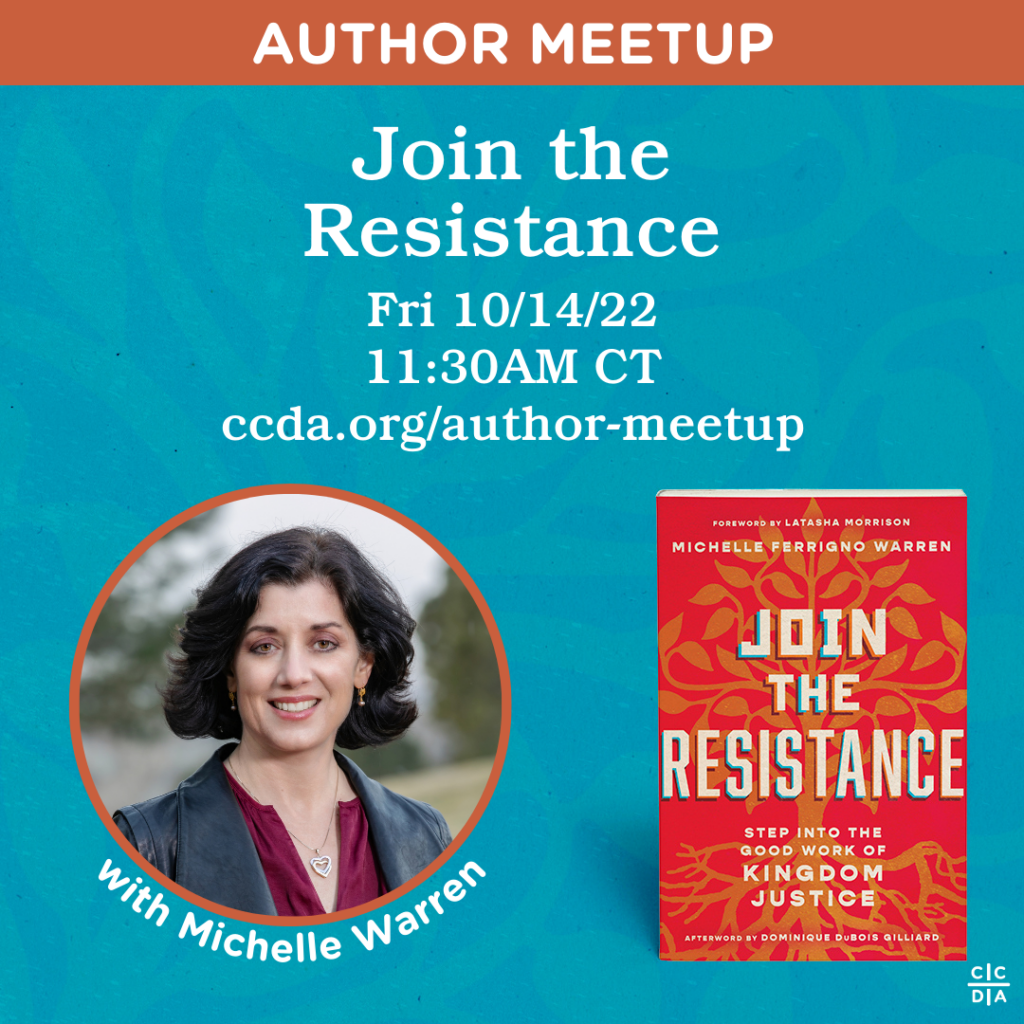
by Michelle Ferrigno Warren
Injustice doesn’t just happen and it doesn’t repair itself. What are Christians supposed to do to ensure that things do not remain as they are?
As practitioners in communities impacted by racial and economic oppression, these are questions that are continuously in the forefront of our minds. Whether or not the news, politicians or social media are highlighting injustice, we who are proximate to its pain, remain very much aware and are working toward new ways forward for effective action that is rooted in our Christian faith and community-centered practice.
It was with my CCDA practitioner’s hat on that I wrote Join the Resistance, Step Into the Good Work of Kingdom Justice. While I am always growing, I wanted to share a little of what I have learned along the way on how to impact and strengthen movements for effective social change.
What started out as a quick framework for white allies to walk into the intersectionality birthed as a result of the murder of George Floyd, quickly became the framework for how I believe Christians should work together to dismantle unjust systems. Movements do not begin when we become aware of them but are something we choose to step into. Their history is bigger, deeper, and wider than any one moment and our awareness of it. How we step into the work may even be more important than those initial steps. We need to understand our place. We need to serve the movement, stay at the table and help our people.
In serving the movement we join a collective, on-going work that has been happening since the beginning of time when everything that was good became broken, putting evil on full display. This work, this good, restorative kingdom work, has been faithfully stewarded and passed on by a chorus of champions, our cloud of witnesses (Heb. 12:1).
Those witnesses are not limited to those in the Bible but have been seen all throughout history and even today. They have and continue to demonstrate for us how to pick up the mantles of righting the wrongs of injustice today, boldly moving toward its repair. They continue to cheer us forward to stay present and sing forth joy in the midst of struggle.
Their stories have been a source of inspiration for me which is why I chose to highlight activists throughout the narrative of the book. Individuals who faithfully showed up to serve, who had no idea how history would remember them. Whether their’s was a one-day or lifetime of service, their posture of serving the movement had deep impacts.
Faithfully stewarding the truth of God’s righteousness and boldly confronting injustice was demonstrated most clearly through the voices of the prophets. In the book, I highlight prophets’ messages, as well as the parables of the prophet Jesus, who was God himself, and came to earth to redeem, reconcile, and demonstrate for us a better way forward.
The deep tentacles of injustice do not yield easily to those who have been intentionally written out of the system and only a reckoning to change it will. While the voices of those closest to the pain lead us, this reckoning does not start with individual movement in a familiar direction but when communities walk together toward change. Walking against the powerful currents of conformity and complacency is a long, important work. This is the work of resistance and the more people who join up, the more powerful the impact.
Until justice and righteousness flow easily downstream and become the status quo (Amos 5:24) the people of God, as a practice of our faith and witness, must be committed to join Christ in His restoration of all things. This restoration of ALL things includes broken systems of oppression.
My prayer is that the message of the book will help shine a little more light on our paths as we continue to join the work of resistance, stepping even further into the good work of kingdom justice.






